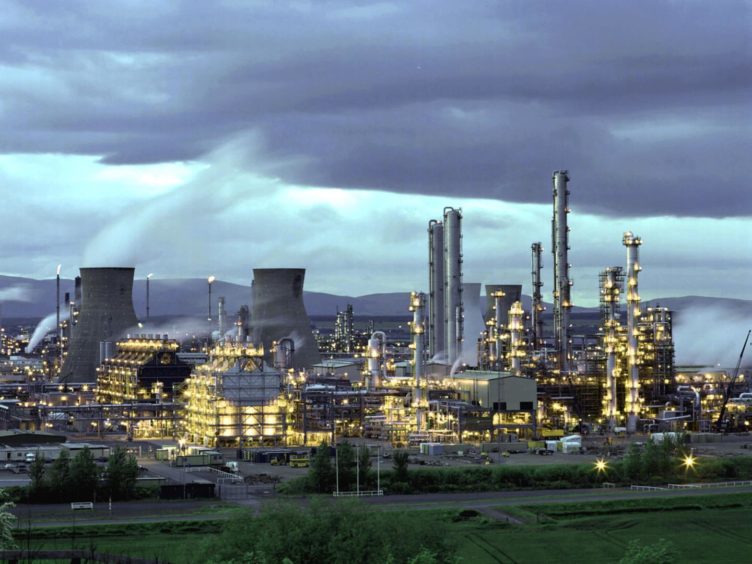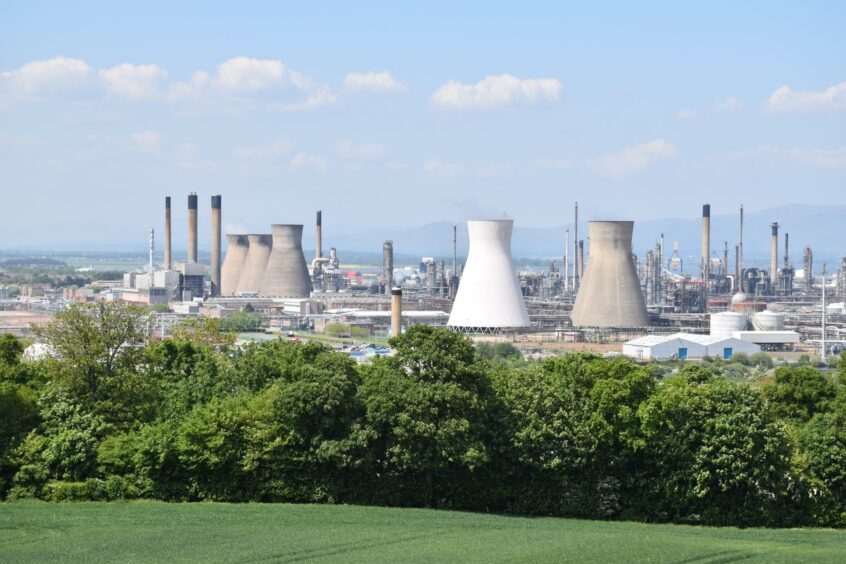 © Supplied by Media Zoo
© Supplied by Media Zoo Fears are growing for hundreds of jobs at one of Scotland’s biggest employers as Grangemouth refinery’s Chinese backer prepares to appoint restructuring advisers.
More than 600 people are currently employed at Grangemouth, with 1,400 more employed at the separately-owned petrochemicals centre which produces ingredients to make plastic at the Forties Pipeline.
The site near Falkirk is part-owned by PetroChina, a state energy giant based in Beijing.
PetroChina bought a 50% stake in 2011 from Ineos Group, and under the terms of this agreement PetroChina is understood to be responsible for most of Grangemouth’s financing.
However pre-tax losses at Petroineos Manufacturing Scotland, the subsidiary that owns the refinery, rose from £2.2 million in 2018 to £26.1m in 2020 as demand for fuel fell during the coronavirus pandemic.
The 2019 accounts showed profit margins from refining were “lower than expected and the company did not meet its overall financial target”.
In November 2020 Grangemouth was forced to scale back its processing capacity from 210,000 barrels a day to just 150,000, and took a £44.7m impairment charge against equipment as a result and booked £2.5m of provisions for redundancies.
The Sunday Times is now reporting that it understands PetroChina is close to hiring restructuring experts to advise on its future options.
Move would be ‘extremely worrying’
The move casts uncertainty over the future of the plant, which accounts for 4% of Scottish GDP and 8% of Scotland’s manufacturing.
Daniel Johnson MSP, Scottish Labour’s economy spokesman, said the move would be extremely worrying for both the workforce and the wider economy.
The Sunday Times reports the UK Department for Business is under the impression Grangemouth has benefitted from the spike in fuel prices following Russia’s invasion of Ukraine, and Ineos is being told PetroChina wants to stay as an investor.
However PetroChina’s representatives are understood to have told City sources it wants to sell out of Grangemouth with one source suggesting such as sale might lead to insolvency.
It is also reported that Ineos would not be interesting in buying PetroChina’s stake.
A source added: “It’s a PetroChina issue, and it is simply a sink for capital, so it’s a problem.
“You’ve got all the health, safety and environmental spending to keep the kit going, and the margins aren’t great.”
‘Important role’ in net zero future
Following these concerns for the hundreds of jobs at Grangemouth, the Scottish Government said the site is playing an “important role” in the move towards relying solely on renewable energy.
Currently Grangemouth supplies two thirds of the petrol and diesel in Scotland and supplies the jet fuel for airports north of the border.
Elsewhere is also supplies a significant volume of petrol and diesel for Northern Ireland and the north of England.
A spokeswoman for the Scottish Government said: “Grangemouth is a source of critical infrastructure, energy resilience, skilled manufacturing and high value employment.
“In recognition of this and the important role the complex will play in our net zero economy we recently established the Grangemouth future industry board, with the planning for a just transition to net zero at the heart of the board’s work.”
‘Deeply worrying’
GMB Scotland senior organiser Gary Cook described the reports as “deeply worrying”, adding: “The elephant in the room is the total absence of a coherent industrial strategy. For years energy workers have looked on with frustration and anger as political leaders have played fast and loose with their industries and livelihoods. Grangemouth is the fulcrum of the Scottish economy, but instead of backing the plant and its workforce for the national assets they are, political and policy failures are breeding uncertainty.”

